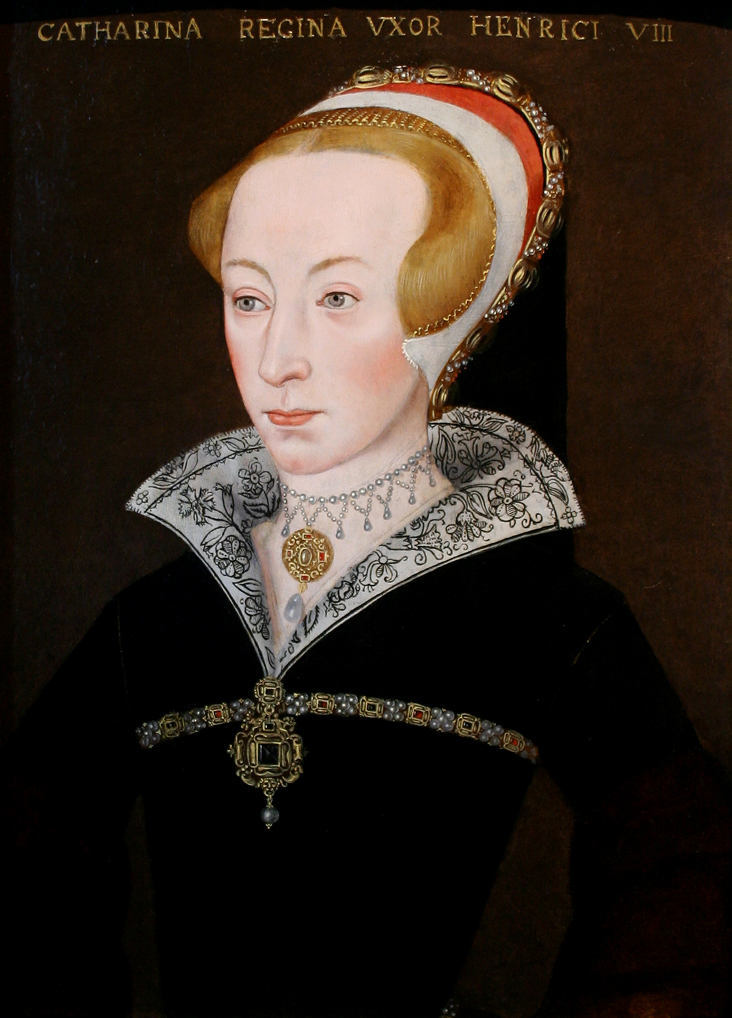There is a story about Henry and his last queen, Catherine Parr, told by the martyrologist John Foxe, which is so extraordinary that it hs often been dismissed as malicious legend, if only because it presents the King as ether an absent minded old fool or a vicious psychopath who delighted in tormenting his wife. As Foxe tells the story, Queen Catherine “was very zealous toward the Gospel” and was careless enough to risk theological discussion as a way of entertaining her aging and difficult spouse. The King’s mind had been systematically poisoned by the widespread hints of Bishop Gardiner and Chancellor Wriothesley that the Queen was tainted with heresy. Suspicious of both his wife’s religious opinions and the political motives of his councilors, Henry listened to Catherine’s disturbing ideas; then he politely ordered her from his chamber, bidding her “Farewell, sweet heart,” which Foxes assures us was his usual term for the Queen when giving her license to depart. The moment she was out of hearing, Henry burst into loud indignation and sarcastically said, “A good hearing it is when women become such clerks; and a thing much to my comfort, to come in mine old days to be taught by my wife.”

—Although Catherine’s role for Henry was more of a nurse in his old age and poor health than a wife, his spirits were greatly improved by her treatment of him. His new confidence was instrumental in the initial unexpected English victory at Flanders in Nov 1543. Catherine’s success was rewarded with her brother William Parr being created Earl of Essex in Dec of the same year, and she herself was somewhat morbidly rewarded with the settlement of all the lands that were originally intended for Anne Boleyn and Catherine Howard. Perhaps Catherine’s most significant acheivement was Henry’s passing of an act that confirmed both Princess Mary’s and Elizabeth’s line in succession for the throne, despite the fact that they had both been made illegitimate by divorce or remarriage.—click image for source…
On Gardiner’s recommendation he then issued a warrant to investigate Catherine’s heretical activities and to search her rooms. Should any damaging evidence be found, the Queen was to be seized and “carried by night unto the Tower.” Foxe defends Henry’s consent to such a scheme on the grounds that “like a wise politics prince,” he ordered the Queen’s arrest “not upon any evil mind or misliking… to have her speedy dispatch, but rather closely dissembling with them, to try out the uttermost of Winchester’s fetches” and to see how far he and Wriothesley would go.
Then, in proper fairy tale fashion, the warrant for the Queen’s arrest was accidentally dropped and picked up by someone who instantly took it to Catherine. The Queen was horrified and promptly, “fell incontinent into a great melancholy and agony.” On hearing of his wife’s state of mind, Henry relented and sent the same physician to whom he had already revealed the plot to attend upon the Queen and comfort her. The doctor’s prescription to Catherine seems to have been to hide her heretical books, throw herself upon the King’s mercy, and assure her husband that she had only appeared to differ with him in religion so as to entertain him during the painful time of his infirmity and to profit herself from his greater theological knowledge.






 COMMENTS
COMMENTS